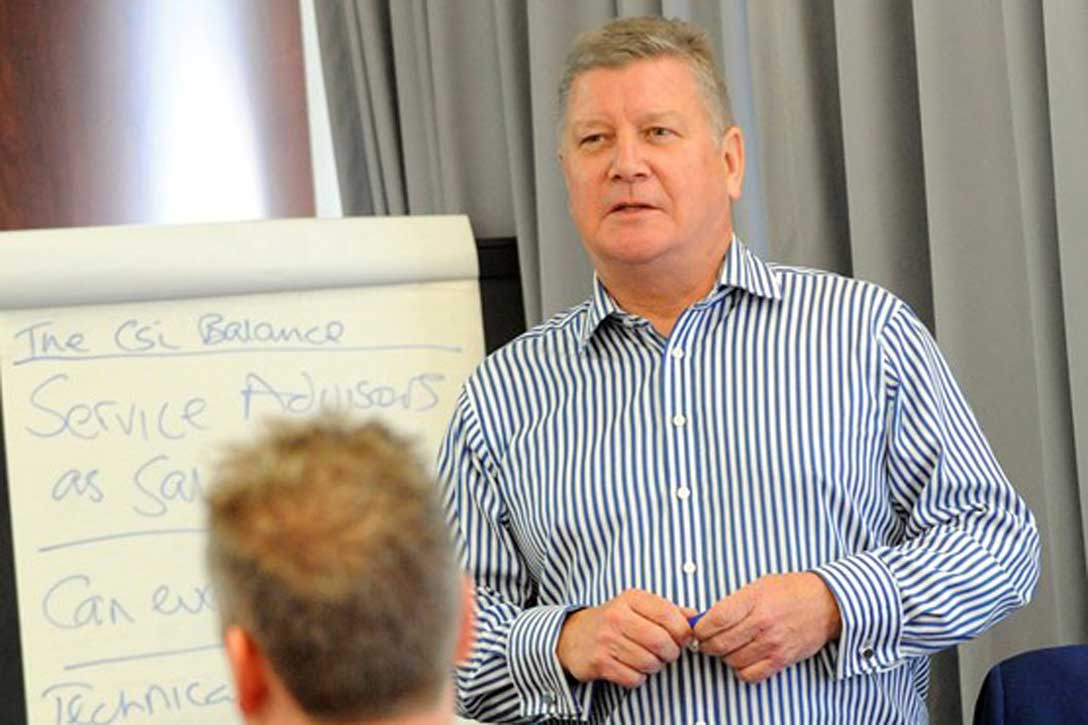Make your meetings about information, direction and development - both receiving information as well as giving it
Well, they definitely shouldn’t be de-motivational, but there’s a massive opportunity for us to stop thinking about our sales meetings as just being about motivation. Because they’re not, it really isn’t possible to motivate the same people on a daily basis.
However, I’m firmly of the opinion that it’s right for us to have a meeting every morning, but I think the meeting should be much more about information, direction and development.
It’s not about the manager holding court, it’s not about giving everyone a hard time in front of their colleagues and it’s definitely not for motivation. It’s purely for information, direction and development, both receiving information as well as giving information.
Information and Direction
For example, it might be the used car pitch needs tidying up so it might need moving around. There might be cars that need to be changed on the front, or prices missing from cars, so somebody needs to be saying “OK, so here’s a job – you sort this, you do this, you do that, etc.” (Information and direction).
There might have been an email that morning with a new marketing campaign from the manufacturer. There might be a new offer on a particular car. (Information).
We might have a piece of overage stock that has reached its age and say “OK, we’ve got a 60 day stocking policy, so a car at 45 days hits the red zone. A car we’ve got in stock hits red today so we’ve got fifteen days to get rid of it. I’ll give an extra £50 bonus to whoever sells this car. And if it’s sold today, I’ll make it £75 or £100”. (Information and direction).
To get the most out of daily meetings we also need information back. One of the other things I find in many sales meetings is that managers don’t listen as much as they should. I do try to get them to think about listening more and speaking less, allowing other people to engage in the meeting. What I often notice is they are missing things such as feedback from customers in terms of what they’ve experienced, feedback from the sales team about the current mood in the marketplace (and what needs to be done), or sometimes feedback about why a particular car won’t sell. (Incoming information).
It’s amazing how many sales managers fall in love with a used car and think it’s a really good car and they’re going to sell it. However, often you could have three sales people who present the car to customers, and present it properly, and they’re getting feedback and there’s a reason why the car isn’t selling and it’s sticking! (Incoming information).
Development
But the sales manager isn’t listening. He doesn’t want to know – he takes the stance “We’ve got it, we’ve got to sell it.” When the best thing would be to trade the car out, take the money and bring another one in. Sometimes salespeople have got stuff that they want to feed back to their manager but there isn’t a forum for that to happen. (Development).
Another thing of note is that customer reviews in terms of opportunities to do business, what happened yesterday, what are we doing today. These are things better done on a one-to-one basis. (Development).
Meeting Themes
Giving your meeting a theme always helps. When you start your meeting on a Monday what’s the theme for the week that can reviewed on a daily basis? (Development).
Here’s my suggestion – set a theme each week. For example, it might be “we’re going to look at using alternative closes. Do a 5 to 10 minute pitch on your chosen theme, how it relates to your business and ask everyone to focus all week on using the strategies and techniques from your theme, everyday use this theme to coach and develop your team.
Then next week it might be thinking about how we greet customers on the pitch or how do we get past the “I’m just looking”. Share some ideas and really focus on it over the week. Then every morning debrief on who’s done what, complete with what works and what doesn’t.
So, in conclusion, do you talk more than you listen? Are your meetings fun and meaningful? Is there a theme? And how are they helping you move more metal?






Leave a Reply